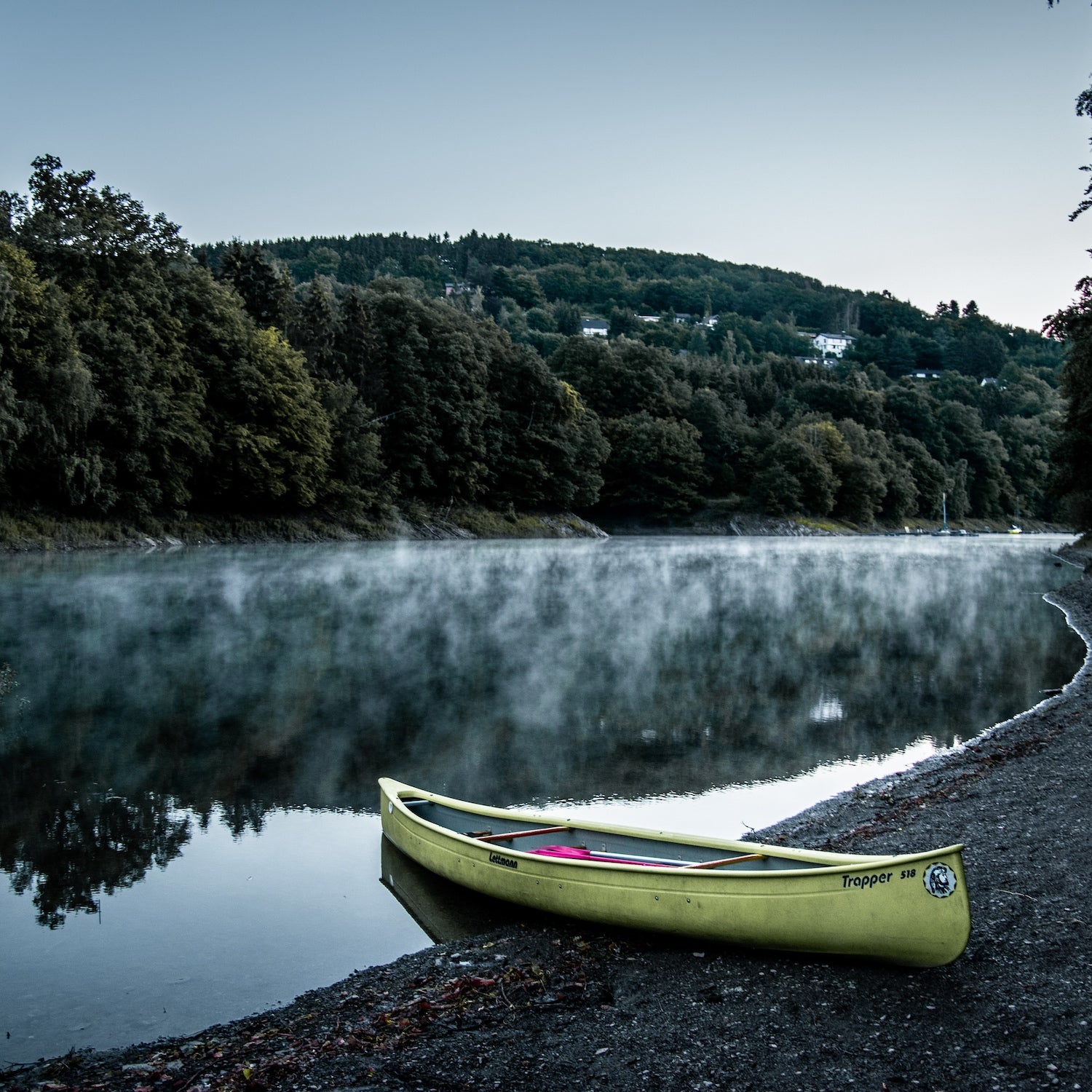In my high school classroom in Norway, the country where I first spent serious time outdoors, I sat beneath a poster of Fjellvettreglene, the nine rules that serve as national guidelines for the backcountry. A decade and a half later, the only rule I remember offhand is the one I always broke. Number seven: don’t go alone. Even at the time it seemed absurd to me, akin to telling all adults to go to bed at 9 P.M. or to avoid alcohol completely. Outdoorspeople—responsible outdoorspeople—go alone all the time. Being alone in nature is uniquely peaceful; one might enjoy it, dare I say,��even more than being outdoors with your friends. If you like solitude at all, there are few things more pleasant than going at exactly your own pace, in whichever direction calls you—or waking at dawn, surrounded by shuffling, swaying living things, and being the only human among them.
Still, there’s a lingering idea that it’s reckless to go out in nature by yourself. I’ll tell you: it is not reckless, at least not necessarily. It’s ancient, and it feels ancient, which is a balm a lot of us could use right now. Of course, nature isn’t a competition or a badge of toughness: you are not a greater outdoorsperson if you venture alone, nor are you lesser if you stay with a group. But I was pleased to see that in 2016, Fjellvettreglene were revised, replacing “don’t go alone” with more general rules about pathfinding and seeking shelter. Even for beginners, heading out solo—within your skill level—might be the most rewarding outdoors thing you do.
Why Go Solo?
There are practical reasons to get outdoors alone: maybe you just moved somewhere new, or your friends aren’t into the stuff you want to try. But it’s also a great first choice, not just��a contingency plan. Nobody’s going to grok what you’re looking for in the outdoors, and the best way to find it, better than you. When you’re alone, you can set your own speed and goals. Or you can focus more on being than going, plant your butt on a rock, and watch shadows slide all afternoon. Odds are, you’ll notice far more than you would in a group.
What Activity Should I Start With?
There are always the basics: hiking and camping. But my go-to for solo time is even simpler. Locate some nature near where you live, bring a bag with supplies (water, snacks, a notebook, an extra sweater) and head there for an hour to just explore. Wander around, getting a feel for the place, the trees and flowers, the lay of the land. When you notice something interesting—an interpretive sign, a cool beetle, a grove where the light hits just so—check it out. If you have fun, and as you get more confident, you can stay for longer periods of time or venture deeper into the woods.
If you want to plan a bigger adventure, try this: close your eyes and imagine your dream outdoor experience. It doesn’t have to be realistic, and you don’t have to be capable of it. Pretend that you’re the most competent version of yourself, and time, money, and skills don’t matter. What would you want to do?
Maybe you thought of scuba diving, backpacking, sailing to Antarctica, or going on a silent meditation retreat. Whatever it is, break that activity into parts. If you thought of sailing to Antarctica, for instance, the parts might be boat travel, cold weather, and the feeling of exploration. Is there anything you can try that fits into one or more of those categories? You might like snowshoeing or taking a canoe trip. Or you could drive somewhere you’ve never been and challenge yourself to discover three new things by the end of the day.
What About Safety?
When we talk about safety outdoors, we’re usually referring to two things: the risks inherent to nature (snakes, sunburn, getting lost), which are aggravated by isolation, and the risk of encountering shitty humans who take advantage of that isolation. Both of these can be greater when you’re alone—although, ironically, they’re often at inverse levels. If you’re in the Alaskan wilderness, it’s very unlikely that people will mess with you, but it’s also unlikely they’ll find you if you break your leg. If you’re in an urban park, you probably won’t get (irretrievably) lost or face bears, but you’ll encounter more people along the way.
Which is to say: learn your environment and act accordingly. (If you’re new to nature, and don’t have access to a guide or experienced friend, you can learn by degrees: start with very short trips and work your way up gradually.) Unless you’d be comfortable sleeping outside in an emergency, stick to marked trails or paths you already know. Keep track of your energy level and water supply. Always tell someone where you’re going and when you’ll be back. Realistically, as you spend more time outdoors, you’ll have a sense of which precautions you can relax, but as a beginner it’s best to err toward caution.
Safety concerns aren’t just particular to your environment; they’re also particular to you. As a white cis woman, my concerns are different from those of my husband, a white trans man (I’d be hesitant to approach a group of drunk men around a campfire; he’d be concerned about receiving help at a medical facility he’s unfamiliar with). Race, class, gender, ability, sexuality, and the ways that we are perceived in public all shape people’s risks outdoors, and you might want to connect with others who have similar experiences. Groups like , , and offer resources, classes, and meetups—and even if you can’t meet in person, you can find community and support online.
Most importantly: if you’re out alone, and you get a weird feeling, leave. Trust your gut. You can always come back another day.
Go Solo Around Other People
Your solo adventure is not contingent on other people being gone; the whole point is that it’s not contingent on other people at all. You might find that you’re most comfortable hiking “alone” on a busy trail with passersby in constant sight. Or you might like relaxing by a creek and watching the water as families picnic nearby. Bonus: if you see people doing something that looks fun—fishing, slacklining, bird-watching—you can put it on your list to try in the future.
Set an Intention
This one’s optional, and introspective, but I’d encourage you to give it a go. Your intention could be practical—getting a good workout, developing a skill—or it could be psychological. Is there a problem you’re working on? A perspective you’re trying to keep in mind? You might want to focus on how your body feels, rather than how it looks. You could practice noticing all the plants and creatures around you. (If you want to develop your curiosity outdoors, I’d highly recommend reading Annie Dillard’s Pilgrim at Tinker Creek.) Maybe you need to get away from certain worries, the things that fill your mind in everyday life. When you find yourself dwelling on them, gently remind yourself to set them aside. You’re not going to fix everything while you’re sitting on a rock in the woods. In fact, you can’t. That’s part of the beauty.


